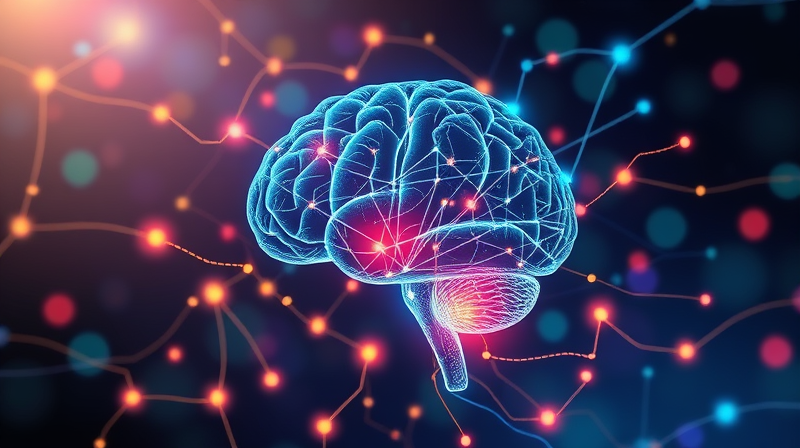Welcome to your journey towards empowering your mind! This article explores a variety of proven techniques and lifestyle choices that can transform your memory from a simple tool into a powerful asset. By systematically applying these strategies, you can enhance your ability to store, retrieve, and utilize information in everyday life. Embracing these methods will not only help you recall details more effectively, but also pave the path to long-term cognitive vitality.
In our fast-paced modern world, the ability to learn quickly and remember more is becoming increasingly important. From academic goals to professional success, and even deep personal growth, mastering one’s memory is a skill that can be cultivated with practice and persistence.
Practical Strategies for Enhanced Recall
Visual Cues and Mind Mapping. One of the most significant approaches to memory improvement is transforming information into visual formats. Whether it’s creating concept maps, diagrams, graphs, or using illustrative mind maps, the power of visuals lies in their potential to simplify complexity. This not only aids in understanding but also helps in linking related ideas, creating a cohesive mental image that is easier to store and retrieve.
For example, when studying a complex topic, create a diagram that ties all the key components together. This method taps into your brain’s natural affinity for images, enabling stronger recall during testing or practical application.
Chunking Information. Another technique, widely supported by cognitive research, involves breaking down large streams of data into manageable segments or 'chunks.' This method reduces mental overload and helps your brain function efficiently. Consider how phone numbers are memorized: segmented into smaller blocks, they become far easier to remember than a continuous string of digits.
Effective chunking can be applied in everyday scenarios. For instance, when faced with long lists or sequences, divide them into smaller groups that have logical connections.
Mnemonics and Memory Palaces. Mnemonic devices such as acronyms, rhymes, and acrostics have been used for centuries to bolster memory. A more advanced version of mnemonic techniques is the 'memory palace.' This method involves visualizing a familiar place and associating pieces of information with specific locations within that place. When you need to retrieve the data, simply take a mental stroll through your chosen environment.
Integrating these methods into your daily routine can enhance your ability to memorize and recall complex information much more effectively.
Engaging Your Senses and Incorporating Active Practices
Storytelling and Linking Techniques. Our brains naturally crave stories. By constructing a narrative that connects various pieces of information, you are more likely to remember them. The key is to create vivid, sometimes even exaggerated, mental images that make the data stand out.
This approach is particularly powerful when trying to remember sequences or lists. For example, if you are trying to remember a grocery list, instead of simply rote memorization, imagine a scenario that links the items together in an interesting way.
Active Recall and Repetition. Instead of passively reading information, actively challenging your brain with quizzes or self-testing improves retention. Implementing spaced repetition—reviewing the material at strategically increasing intervals—further reinforces what you’ve learned by building long-term memory pathways.
This method not only improves memory, it also builds a habit of self-assessment, ensuring that the learning process remains dynamic and interactive.
- Writing It Down. Handwritten notes create a deeper cognitive connection compared to typed notes. The act of writing forces concentration and helps in encoding the information more efficiently.
- Say It Out Loud. Vocalizing what you learn stimulates both auditory and verbal memory processes. Speaking the information reinforces your mental picture and can often lead to faster recall.
Optimal Study Habits and Environments
Creating a conducive environment is essential for optimal memory retention. The physical space and your approach towards studying can play a significant role in how well you remember information.
Organization is key. A clutter-free, distraction-free workspace facilitates better focus and clearer thinking. Consider organizing your study area with vibrant colors and strategic highlights to emphasize important information.
Additionally, ensuring that you take regular breaks can help maintain high levels of concentration. Frequent short pauses during study sessions allow your brain time to absorb information, setting the foundation for long-term memory.
Lifestyle Choices That Empower Your Memory
Physical Exercise. Regular physical activity boosts blood circulation to the brain, providing it with the necessary nutrients and oxygen required for optimal performance. Exercise is not just about physical strength—it contributes significantly to cognitive clarity and memory retention.
Quality Sleep. Never underestimate the power of a good night’s sleep. Sleep is the period when your brain consolidates memories and cleanses itself from the day's fatigue. Adopting a consistent sleep schedule can drastically enhance your recall abilities over time.
Diet and Hydration. What you eat and drink holds a profound impact on your brain function. A diet rich in omega-3 fatty acids, antioxidants, and whole grains equips your brain with the right nutrients. Staying hydrated also ensures that every part of your cognitive system is running efficiently.
Stress Reduction and Mindfulness. Chronic stress not only disrupts your focus but can also impede memory formation. Incorporating mindfulness practices, such as meditation, can help reduce anxiety and sharpen your mental acuity. When your mind is calm, it is better able to absorb and store information.
Stay Mentally and Socially Engaged. Social interactions and continuous learning stimulate your brain, keeping it active and receptive. Engage in conversations, play brain games, or challenge yourself with new hobbies to maintain mental agility.
By nurturing your body and mind through these lifestyle choices, you build a robust foundation for long-term memory health and overall cognitive function.
In conclusion, the journey to memory mastery begins with understanding and implementing effective strategies. From hands-on techniques like mnemonic devices to lifestyle modifications such as regular exercise and proper sleep, every effort counts. As you integrate these methods into your daily life, you will notice a significant improvement in your ability to recall and apply information. Let your commitment to memory mastery not only sharpen your mind but also inspire others on a similar quest for cognitive excellence.
Remember, every step you take towards enhancing your memory is an investment in yourself and a stride towards a future filled with endless learning possibilities.








